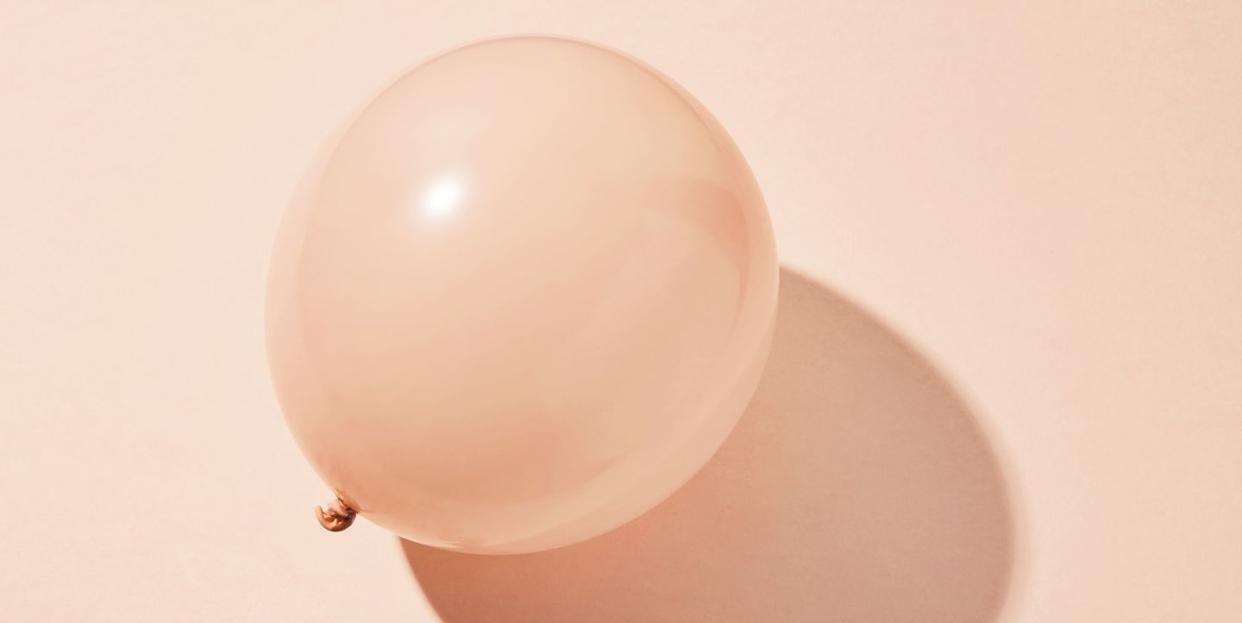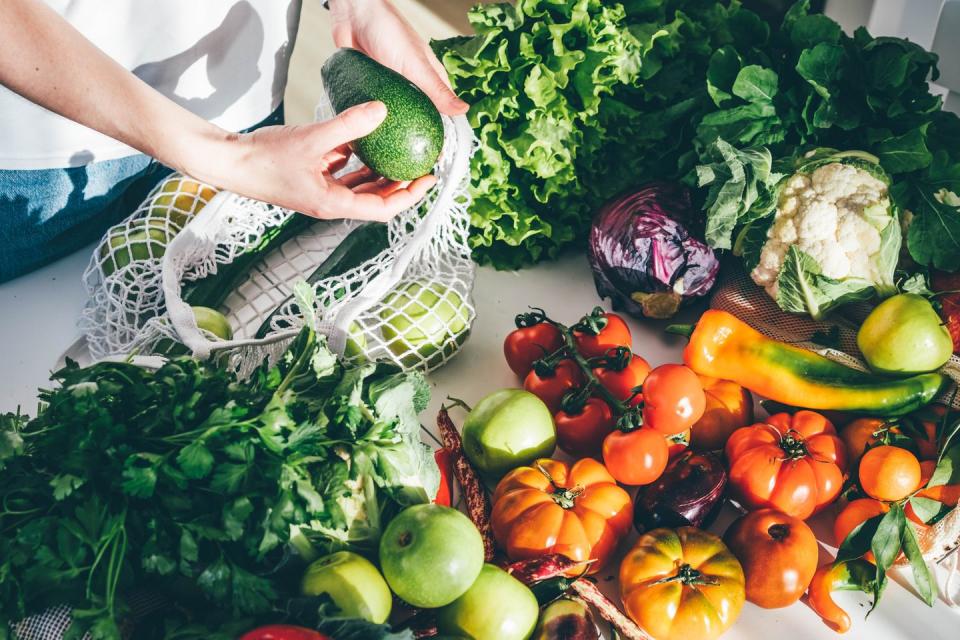Painful period bloating got you good? Here's how to manage TOTM bloat

Along with other less-than-desirable side effects of your period, which include eating literally everything in sight and enduring the uncomfortable hum of stomach cramps, is the inevitable bloating.
As the NHS reminds us, most women's periods can last anything from two to seven days. Depending on how your body works, the bloat can arrive and, with it, an increased desire to wear pyjama bottoms 98% of the time.
Fun fact: bloating is actually a very common symptom of premenstrual syndrome (PMS), which as many as 3 in 4 women have at some point in their life, according to Dr Daniel Cichi, GP and medical advisor at Doctor 4 U. "Bloating or some form of digestion problem is very common just before or during a period," he explains.
But have you ever wondered why bloating occurs during your time of the month? We've asked a range of experts – read on to find out more.
Why you get period bloating
As Dr Penelope Law, consultant obstetrician and gynaecologist at HCA UK's The Portland Hospital, explains: "The uterus contracts daily in a mild, almost imperceptible manner."
"As you get closer to your period, these oscillating waves – usually from the fundus (the upper end of the uterus closer to the belly button) work their way down to the cervix – with a frequency of about every 40 minutes. During your period these are more intense – they originate from the lining of the uterus, called the endometrium, and are responsible for the pain some women feel," she explains.
Although menstrual bloating is linked to these "contractions", the expert explains how it's actually your digestive system, and not your reproductive system, that causes the swelling of your lower abdomen during your monthly bleed.
"During menstruation, the bowel works more slowly because the increased contractions, 'waves', of the uterus have an impact on how quickly food moves through the digestive system, known as peristalsis," Dr Law says.
"This leads to the familiar swollen feeling many women experience whilst on their periods and can also be linked to why you can feel more constipated during menstruation."
Is it just my TOTM causing my period bloating?
Of course, there may be other contributing factors to the cause of bloating on your period, such as water retention. As explained by Medical News Today, this is linked to "changes in levels of the sex hormones progesterone and oestrogen."
"About a week before a woman's period starts, levels of the hormone progesterone fall. Research suggests that changes in progesterone and oestrogen levels cause the body to retain more water and salt. The body's cells become swollen with water, causing the feeling of bloating," the medical site reads.
So now you know: you're bloated on your period due to a mix of excess water and full bowels. Delightful.

7 food-based period bloating remedies
Wondering it there are any foods or remedies that can help you de-bloat? Nutritionist Sophie Trotman confirms there is – so, in the build-up to your period, during your cycle and basically any time you're experiencing period bloating, she suggests the following to help ease any painful symptoms.
The foods to avoid when you're bloated
Caffeine: "Try to limit caffeinated beverages, such as coffee and certain teas, as they can exacerbate bloating and may further disrupt your already suboptimal sleep patterns"
Salty foods: "Reducing the consumption of salty and processed foods can help to minimise water retention and bloating"
Sugary food: "Moderate your sugar intake, as an excessive amount can lead to mood swings and exacerbate hormonal fluctuations"
The foods you should be eating to benefit you during your menstrual cycle
To reduce bloating during your period: "Consider incorporating foods rich in potassium, such as bananas, sweet potatoes and spinach, as they can help to regulate fluid balance in the body"
To reduce muscle cramps and mood fluctuations: "Foods high in magnesium, such as nuts, seeds and dark, leafy greens can be beneficial"
To combat inflammation: "Consume omega-3 fatty acids, found in fatty fish, chia seeds and flaxseeds, which can also provide relief from period pain in some instances"

3 things to do to ease period bloating
Drink lots of water
Drinking enough water is key here. "On the days leading up to your period, make sure you’re increasing your water intake," advises Dr Chichi. Drinking lots of water while you’re bloated may seem a bit odd, but it will help get your digestive system moving and prevent wind and constipation. It will also help to flush out any excess water and sodium and reduce swelling.
Increase your physical activity
Again, probably not something that'd spring to mind, but this is also key. Dr Chichi explains that exercise can help with all symptoms of premenstrual syndrome (PMS), but particularly any pains, cramps, or discomfort around your digestive system. "Don’t underestimate how effective exercise can be for bloating," he shares. "It helps to expel gas and get your digestion working normally."
Visit your GP
If lifestyle changes aren’t working for you, Dr Chichi points out that there is the option of the contraceptive pill, if you feel that is right for you. "The pill is a way to reduce PMS symptoms, such as period bloating, but it’s about finding one that suits you and it may not work for everyone," he explains.
It's important to note that some women find that bloating is a side effect of the pill, however, for other women it can help. If you're at all interested in this as an, it's worth booking an appointment with your GP for some expert advice.
You Might Also Like
